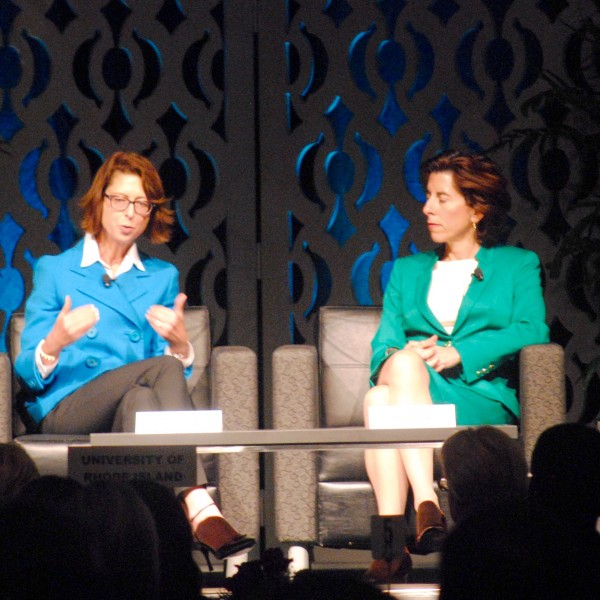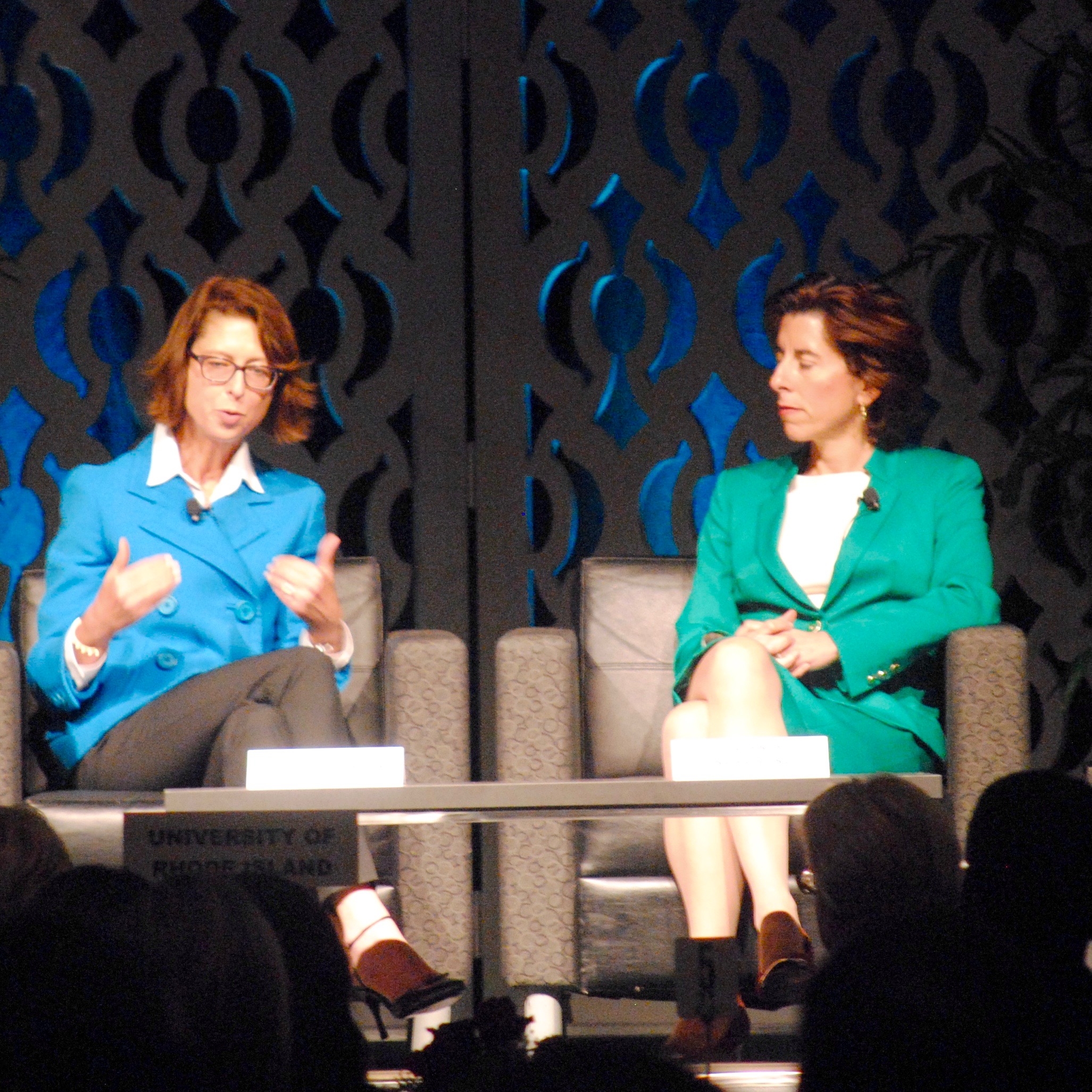When describing what she sees as the problem of convincing millennials that they need financial literacy, Abigail Johnson, the CEO who runs the company that runs Fidelity Investments, said that not only do millennials not understand that they need to save money for retirement, but they “don’t have the money to save anyway, so what’s the point?” (See video below, starting at the 23m mark)

Johnson was making a joke, one that Governor Gina Raimondo laughed at along with most of the attendees of the Greater Providence Chamber of Commerce 2016 “Economic Outlook Luncheon.” She was answering Chamber president Laurie White’s question about the difficulties of channeling millennials into the workforce of the future.
Johnson hoped that millennials, even those who don’t go to college, might one day learn the “concepts” and “basics” of financial planning. She estimated that perhaps 14 percent of Rhode Islanders have their retirement funds invested in her company, the not-so-subtle subtext being that she sees millennials, the “workforce of the future,” as essential to her company’s future profits.
White, Johnson and Raimondo were talking about people as commodities, defined purely by their economic value.
This is the promise of “neoliberalism,” ostensibly a view that markets, when left alone, will govern themselves fairly and equitably. But Wendy Brown, a political scientist at UC Berkeley, wanted to explore what neoliberalism has done “to political life, to social life and to the human being.”
Neoliberalism seeks to expand markets to every part of life, including democracy, human social life, education, social services and more. “The idea,” says Brown, “is not to just let free markets have their way, but to produce everything in the image of the free market.”
Brown calls this the “stealth revolution,” the transformation of the human being into nothing more than their economic value and the devaluation of democracy in the face of market forces and the will of the billionaire class.
What we lose by turning our government into a business determined by markets instead of democracy is the idea of equality as a fundamental principle, the unraveling of shared power, and the undermining of the people’s ability to determine a societies values and policies, says Brown.
Under this view, says Brown, there is “no space for democracy anymore… everything should be understood as markets…”
This brings me to Lenette Boiselle, representing the Northern RI Chamber of Commerce at a RI House Environmental committee meeting last week. Boiselle was at the hearing to oppose “one specific part” of a bill that, if passed, would give the voters of Burrillville the power to approve or reject any tax deals made by their town council with power plant companies.
“The Chamber of Commerce has a history of opposing any type of referendum,” said Boiselle, “whether it be a voter initiative or a referendum on a mall, a casino… as a fundamental principle, the Chamber of Commerce believes that these types of issues are extremely complicated…” When issues like this are decided by referendum, said Boiselle, “those who spend the most money usually win.”
Representative Aaron Regunberg then asked, “Money plays a big role in every election. Do you think we shouldn’t have any elections?” [4m55s]
Boiselle seemed to understand that saying democracy doesn’t work might be a bad move, so instead she told a story that sought to undermine democracy’s legitimacy. She gave an example of what she saw as the problems of voter referendums she worked on in Massachusetts.
Earlier that day Boiselle was at the Northern RI Chamber of Commerce breakfast that featured Invenerg’s director of development, John Niland, as the the speaker. Questions at this breakfast were written down by attendees on idea cards and submitted in writing to Boiselle, who carefully went through them to make sure that Niland was not hit with any questions that he was unprepared to answer.
This is the kind of protection from scrutiny private business concerns routinely employ. When we run our government like a business, we shouldn’t be surprised when our elected officials try to employ the same methods to protect themselves from scrutiny. This is why Governor Raimondo doesn’t want to go to Burrillville and talk directly to the people. This is why she goes denies APRA requests. This is why she makes trips to New York, or plans trips to Switzerland, but won’t say who she is talking to or why.
I’ll leave this with one final thought.
“Modernity brought us the idea that human beings, rather than nature, rather than Gods, and rather than tradition… could be in charge of their own lives, their own future, and could exercise freedom in coming together with others and deciding individually, how to live,” said Wendy Brown, “That was the promise of modernity.”
Let’s work together to forge a democracy that does not forget this.




